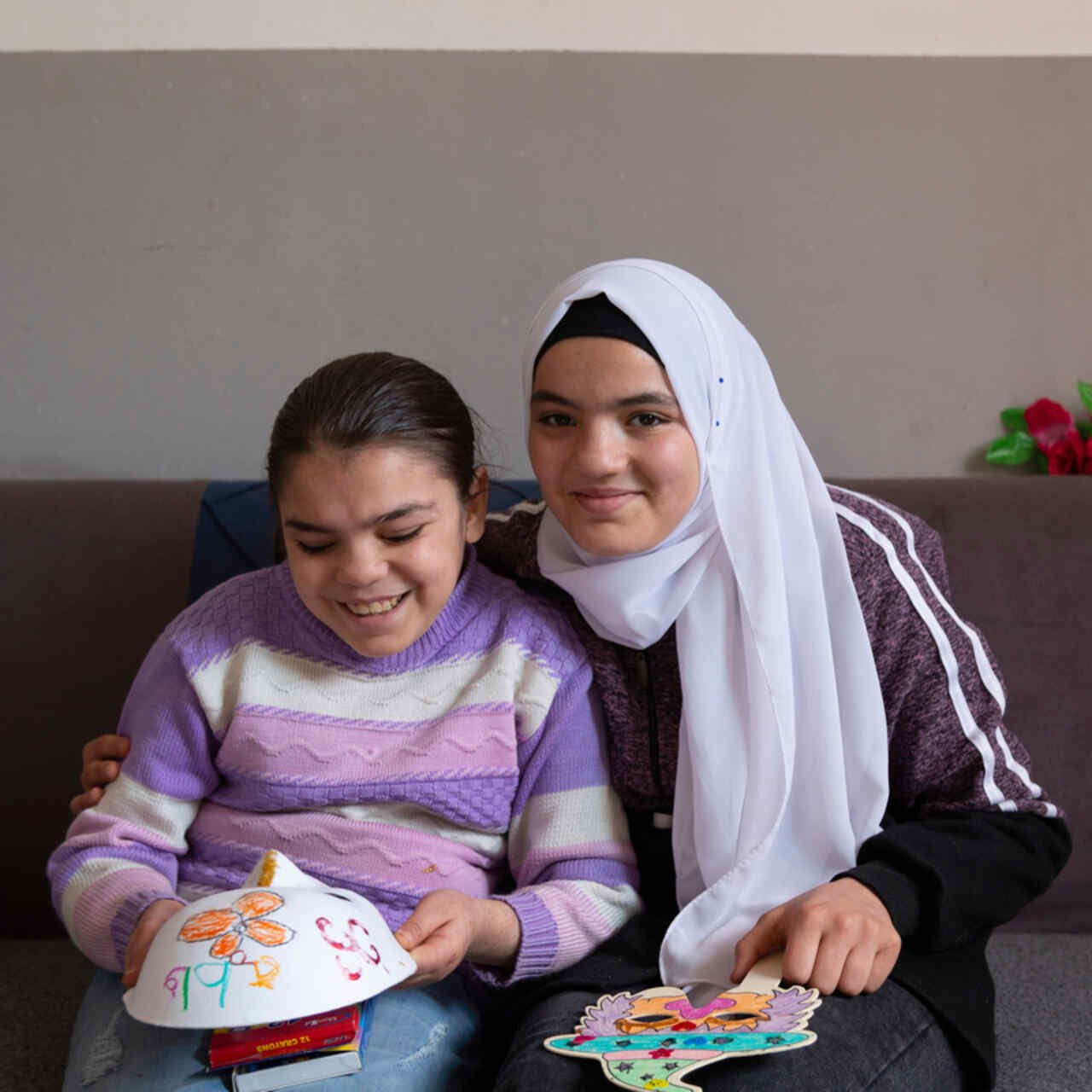
Meet Ameera: the Syrian refugee finding confidence through safe spaces
With the help of the IRC’s EU-funded safe spaces, Ameera can have a support network to deal with the aftermath of displacement and war.

With the help of the IRC’s EU-funded safe spaces, Ameera can have a support network to deal with the aftermath of displacement and war.
Ameera* and her family were displaced from their hometown in Syria. The eldest daughter of 6 siblings, Ameera lives with developmental delays and medical issues.
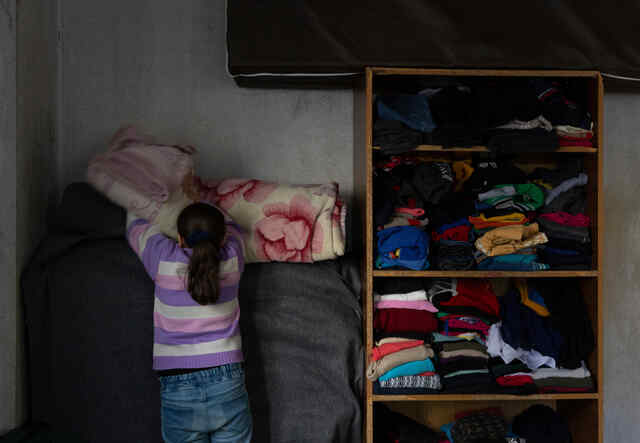
Due to medical malpractice, she is also blind. This has only made adapting and settling into Lebanon as Syrian refugees more difficult for Ameera and her family. However, with help from those around her and through her own determination, Ameera has made huge strides in finding confidence.
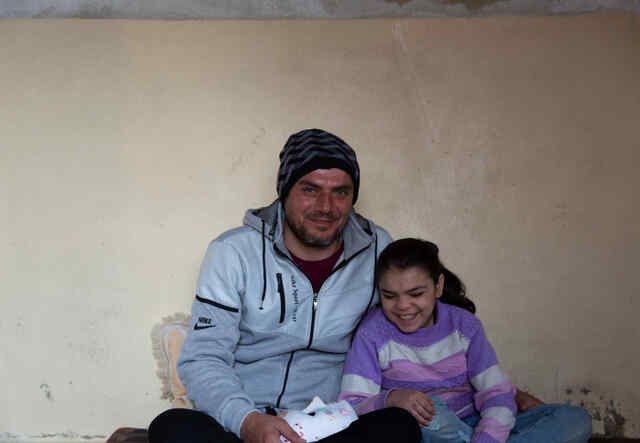
Samer*, her devoted father, fled from Syria to Lebanon with his family in 2012. A majority of his earnings go towards treating the fragile physical health of his family. But his children are his greatest source of strength in overcoming hurdles. He wants to do everything in his power to support and care for them.
He has watched Ameera grow since she began attending the IRC-led safe space sessions with her sister, Ruqaya. He says, “Three months ago, Ameera did not mix well with children. She is now getting out of the house, is more aware of her surroundings, and also has the desire to explore.”
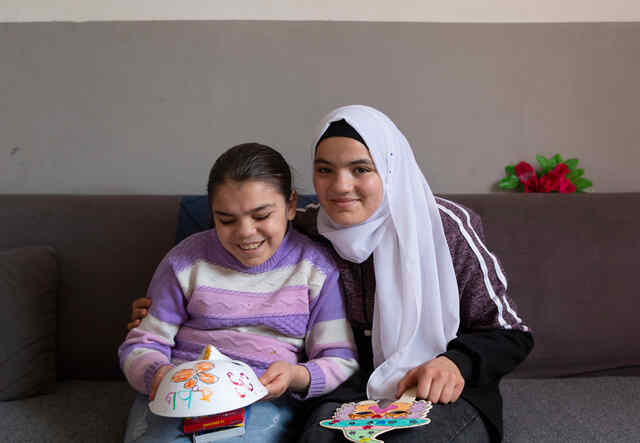
This change in her character was also observed by Ruqaya, who explains that Ameera used to get angry and lash out at her friends, which led to her becoming antisocial. She says, “After attending the sessions everything in her [Ameera’s] life changed. I even felt like she became closer to me.” This noticeable switch in her personality led Ameera to reconcile with her friends and lead a more fulfilling social life.
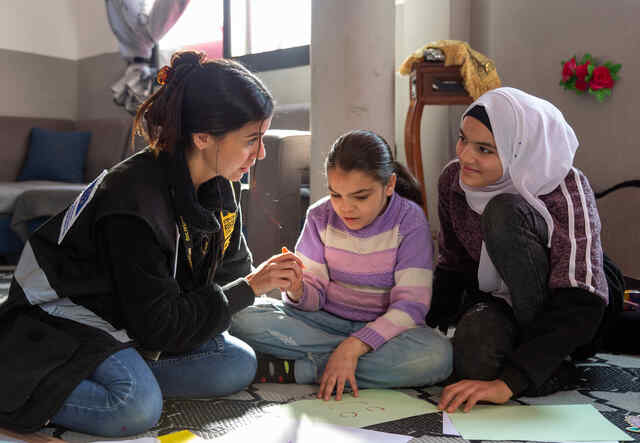
Diana is a 33-year-old Lebanese IRC staff member who support the safe space sessions that have helped Ameera, her sister, and countless other girls. Her motivation to join as an Adolescent Girls’ Assistant came from her experience as a young girl lacking access to important information and resources. She says, “I have the chance to give these girls access to the information they are really in need of.” It was, and still is, taboo to discuss certain issues in the wider community; especially around the topic of mental and reproductive health. Diana is determined to provide young girls with the communal support she was deprived of growing up.
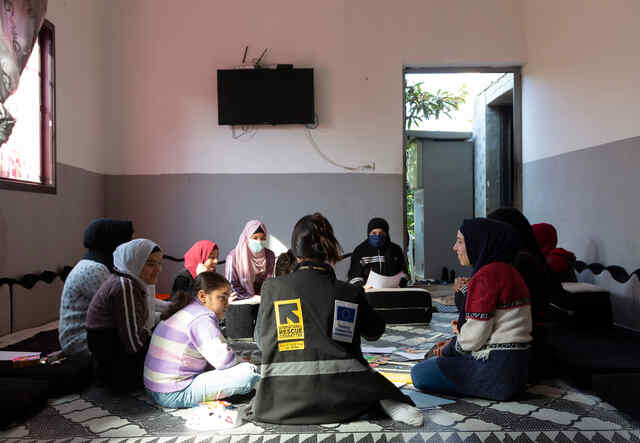
Diana has also noted a valuable change in Ameera’s quality of life following the IRC sessions which they adapted according to her special needs. They were able to create a safe space tailored to address her specific concerns. It was important to gradually build her trust so that she felt comfortable enough to express herself. It took around 4-5 sessions for her to open up and begin partaking in the activities with the other girls.
“The most important lesson that I teach the girls is to always speak out and seek support,” says Diana. “It is a critical first step in improving their self-esteem, self-confidence and to actually solve problems.”
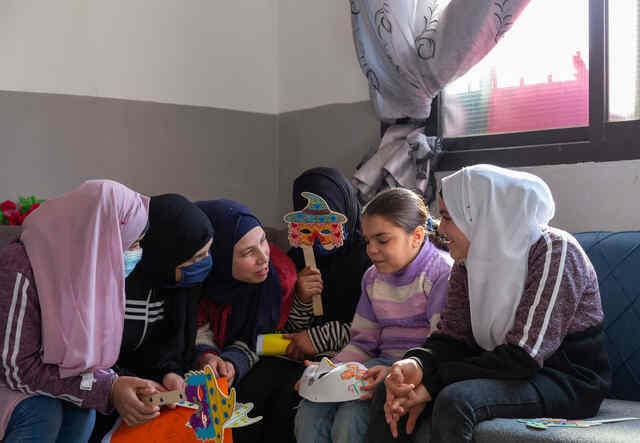
This kind of support allows girls like Ameera to lead more confident lives. Diana explains how each sessions begins with handicraft activities that help the girls feel comfortable in the environment around them. Gradually, trust is built and staff members emphasize the confidentiality of conversations held in the sessions. This secures their attention and trust.
Since 2011, Syrian society has been torn apart by brutal violence, creating one of the largest humanitarian crises of the 21st century. 6.7 million people are still displaced inside Syria and 15.3 million are in need of humanitarian aid.
Many civilians have been left living in perpetual conflict zones and have been displaced multiple times. Women and children are particularly vulnerable to a range of safety issues including sexual violence, early marriage, child labor, as well as physical and mental trauma. The conflict has been aggravated by the earthquakes that impacted Northern Syria in February 2023. One of the ways that the IRC provides aid to those affected is through various support programs for Syrian refugees in Jordan, Iraq and Lebanon.
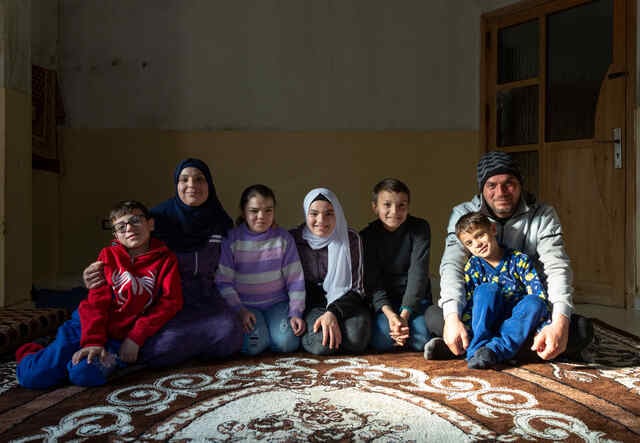
“The thing I love the most about Ameera,” her father says with a smile, “Is how active she is, despite her situation. She does not give up.”
Ruqaya now enjoys spending most of her time with her sister. Together at the center, they play with toys, draw, color, and make a Lebanese salad called tabbouleh. Ameera is living a life full of community and care. She is developing friendships, is more outgoing, navigates her house better, is more communicative and happier.
She dreams of continuing school and attending a university one day.
*Names have been changed to protect the identity of the persons interviewed.
The International Rescue Committee partners with the European Union to provide life-saving support to people caught in conflict and disasters around the world. Our work funded by the EU enables people to survive, recover and rebuild their lives.